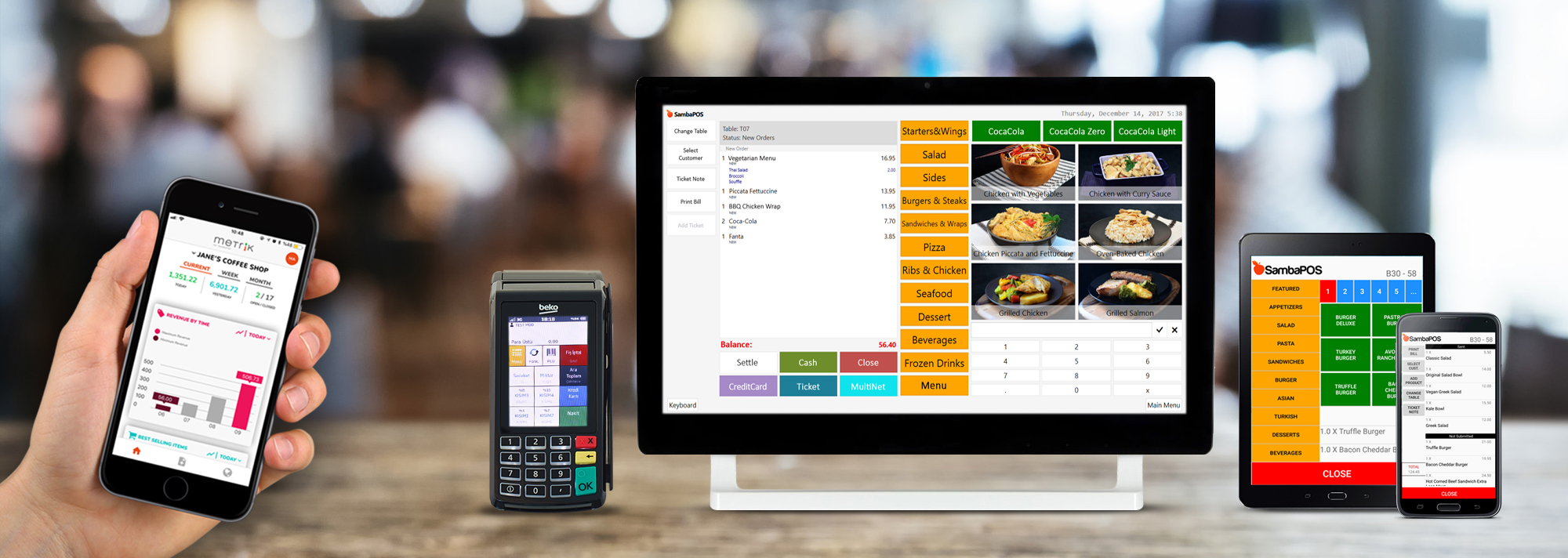In the current rapidly changing commercial environment, utilizing a reliable point of sale (POS) system is essential for prosperity. Regardless of whether you're running a bustling restaurant, a retail shop, or an e-commerce store, a suitable POS system can enhance your operations, boost customer experiences, and provide valuable data insights that can inform your business decisions. As https://impos.com.au/venue/restaurant-pos-systems/ evolves, so do the features of modern POS systems, which makes it crucial for businesses of all sizes to be knowledgeable about their options.
In this piece will discuss the different facets of POS systems, from their basic functions to advanced features like data analytics. We will investigate what a POS system really is, how it has changed over the years, and the unique benefits it brings to distinct industries. Through understanding the full potential of your sales data and the technology that supports it, you can unlock new possibilities for growth and improved efficiency in your business.
Grasping Point of Sale Systems
A Point of Sale system, or POS system, is an essential tool for contemporary businesses that simplifies transactions between customers and businesses. It is more than a mere cash register; it combines hardware and software to streamline the sales process, manage inventory, and provide critical insights into customer behavior and sales performance. A typical POS system includes a register, a computer or tablet, a receipt printer, a barcode scanner, and a card reader, all working together to enhance operational efficiency.
The progression of POS systems has been significant over the years. At first, businesses depended on traditional cash registers that simply recorded transactions. Nonetheless, with advancements in technology, current POS systems now offer web-based solutions that allow businesses to access data remotely and in real-time. This shift enables greater flexibility and scalability, meaning businesses can alter their operations as needed without being tied to a physical location. Additionally, features such as mobile compatibility and advanced security measures have transformed how transactions are conducted.
Today, businesses across multiple industries utilize POS systems to improve transaction speed, accuracy, and customer satisfaction. From restaurants to retail stores, niche solutions have developed to meet distinct needs, such as table management in hospitality or inventory tracking in retail. The ability to link POS systems with other business tools, such as accounting software and customer relationship management (CRM) systems, further enhances their functionality and effectiveness, making them a key element of effective commercial operations.
Choosing the Right POS Solution
As you choosing a POS solution for your company, it's important to determine your specific needs and operational requirements. Take into account aspects such as the scale of your company, the sector you function in, and the capabilities that are most important for transactions and client interactions. Determine whether you require a system that can handle inventory management, customer relationship management, or advanced analytics to make informed decisions. Comprehending these requirements will aid limit the options greatly.

Additionally, consider the budget you assigned for the POS system investment. POS solutions can vary widely in terms of cost, ranging from simple setups for small businesses to more comprehensive solutions suitable for bigger enterprises. Be sure to include any ongoing costs, such as transaction fees, subscription plans, and maintenance. It’s prudent to select a system that not only fits the current budget but also permits scalability as your business expands.
Finally, don’t neglect the significance of integration capabilities. A good POS solution should smoothly integrate with other software you are utilizing, such as accounting software, e-commerce platforms, and inventory tracking systems. This integration will improve efficiency and streamline processes, allowing you to focus more on supporting your customers. Be certain to research vendors diligently, read user reviews, and maybe even ask for demos to confirm the system you select aligns well with your overall business goals.
Enhancing Business Processes with Point of Sale
A contemporary POS system substantially enhances business operations by optimizing transaction processes and improving overall efficiency. With capabilities such as real-time inventory tracking and automated sales reporting, businesses can minimize errors and maximize stock levels. This efficiency not only conserves time for employees but also allows them to dedicate themselves to providing outstanding customer service, which is critical in sustaining customer loyalty and satisfaction.
Furthermore, the incorporation of cloud-based solutions allows access to sales data from any place, empowering business owners to make prompt decisions based on timely information. By capitalizing on analytics capabilities, businesses can identify trends and grasp customer preferences, leading to more thoughtful marketing strategies and promotions. This data-driven approach ultimately assists strategic planning and fosters growth by aligning business efforts with consumer demand.
In addition, employee productivity can be significantly enhanced with a user-friendly POS system. Intuitive interfaces and mobile POS options enable staff to complete transactions rapidly and efficiently, leading to lessened wait times for customers. Training staff becomes easier when systems are uncomplicated, and the dual benefit of enhanced employee satisfaction and better customer experiences creates a favorable feedback loop that bolsters the overall operation of the business.
